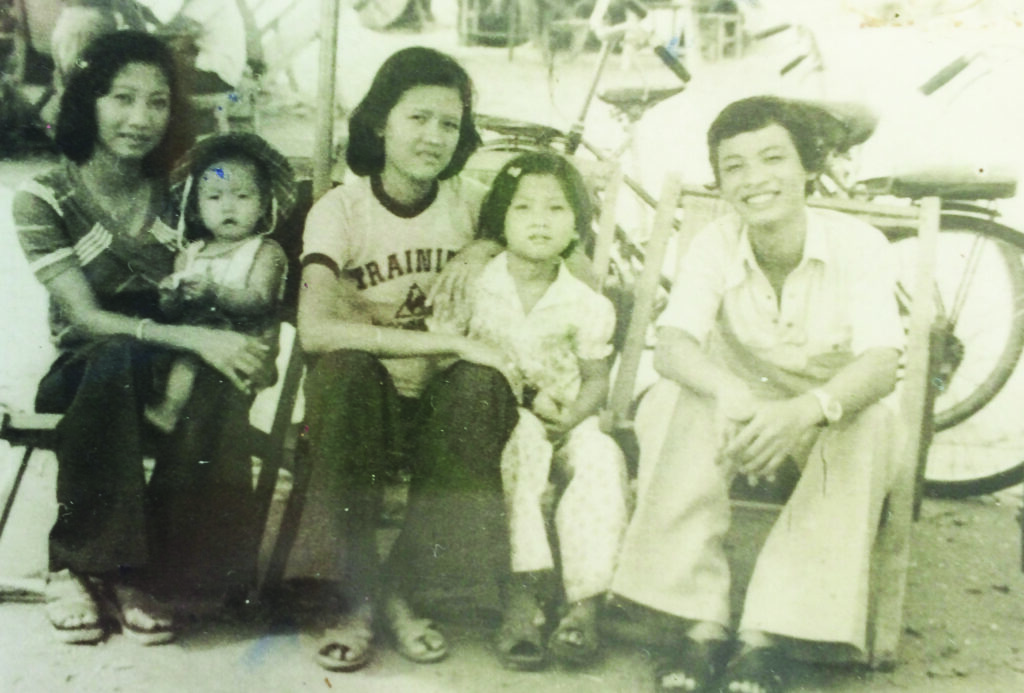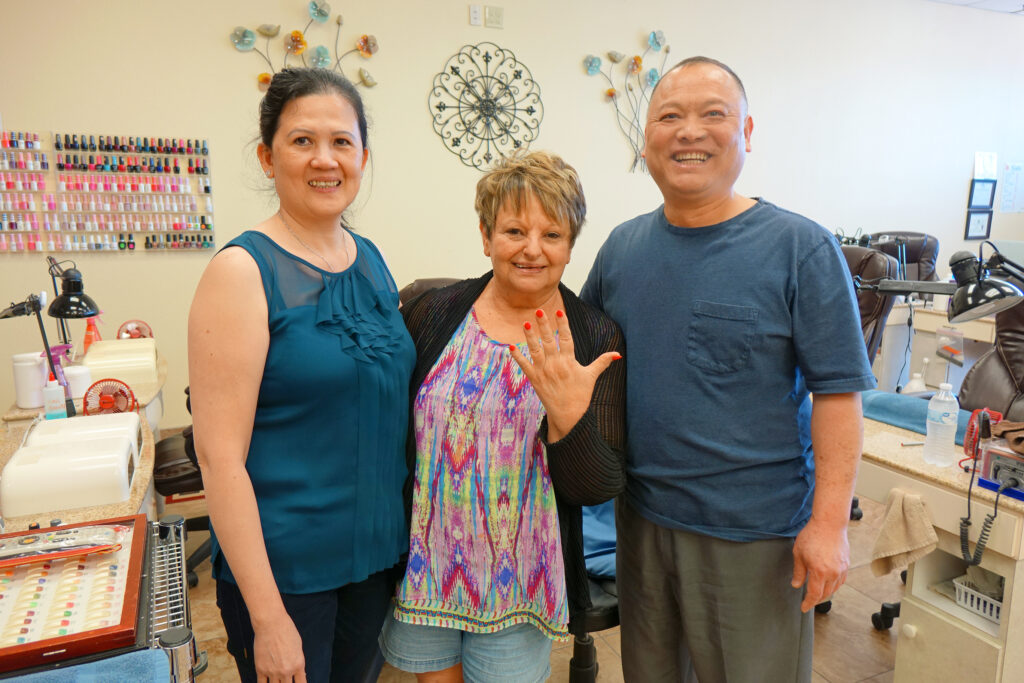by Cathy Payne
family photos courtesy of Richard Le
Georgetown nail salon owner Richard Le is well-known among his clients for his quick wit, self-deprecating humor, and entertaining stories. Most anyone who has had the opportunity to sit across the manicure table from him has probably heard references to his life in Vietnam peppered between the humorous quips and vignettes, and he seems to remember the date he arrived in America as well as most people know their own birthday; September 27, 1982. In its entirety, the extraordinary story that chronicles his escape from Communist-ruled Vietnam in 1981 reads like a plotline from an Indiana Jones movie. Le and his wife Christine spent nine months defying death on the open sea; pirates, starvation, dehydration, a jungle and sharks. But for the Les, the pursuit wasn’t about a holy relic; it was for freedom and opportunity.
Having been born in the middle of the Vietnam War, Le remembers living under Communist rule for seven years. His opinion of the government was simply this; “My whole family was in the military and I don’t believe or trust Communists.”

Knowing that a failed attempt to flee the country would lead to imprisonment, punishment and possible death, Richard says escape plans were never overtly discussed. The best plans were those of opportunity, and Richard’s came one afternoon when his father surreptitiously gave him $20, a watch, a ring, and told him that there were laminated pieces of paper with a U.S. address on them sewn into the hems of his clothing. He and Christine were to leave immediately and quietly lest they draw the attention of the police.
Without any forewarning, a plan, or even an idea of where they were headed, the Les and 26 others set off in a boat “the size of a minivan” for the journey across the ocean.
Between them they had fewer than two dozen rice cakes wrapped in banana leaves, a bag of lemons, and five containers of water. After two days on the ocean, the boat’s engine died and they began drifting. They had no light source, or any way to control where they were headed.
Off the coast of Thailand the boat was boarded by pirates. Le gave them his watch and ring in exchange for two cans of water and a few bowls of rice, which, once empty, became lifesaving devices to bail water out of the leaking boat.
After surviving a harrowing and unplanned layover in the jungles of ominously named “Shark Island,” the beleaguered mariners were eventually rescued by a United Nations ship and were taken immediately to the hospital to recover from dehydration and malnutrition. Only 16 of the original 28 from the “minivan” boat survived the trip.
With the offer of asylum in the United States, Richard and Christine made their way around the globe by way of Kuala Lumpur, the Philippines and Tokyo before landing in San Francisco with a single pair of tennis shoes, underwear, jeans, and a shirt. It was September 27, 1982.
Richard spent his first years in America learning the language, the culture, and making the most of his hard-earned opportunity and new-found freedom. After finally settling in Wichita, Kansas, he went to school to learn English, worked in a gas station, restaurant, and in the garment district. He went to beauty school, dental tech school, and the Gemology Institute of America.
The Les’ first daughter was born that year, and he says he used all his money for diapers and formula. While adjusting to a new baby, a new language, and a new culture, Richard recounts that he and Christine inadvertently ate canned animal food for a year without realizing it. “I cooked it and put it on sandwiches. It tasted good and it didn’t kill me.” In spite of, or perhaps because of his journey here, he says, “Everything that happened feels like God put us here. The good side was too strong for the bad side.”

Le also believes in the American dream; “[It] always comes true. That is why there are so many [people from] third world countries coming here. But freedom does not come easy. You’ve got to fight for it. This country has specific and clear laws. If government doesn’t have laws, there are going to be riots. Even in your house there are laws to follow.
“If you pay taxes here, they tell you where your money is going; they fix the roads and they take care of children. There is no such thing as a free lunch or student loans in Vietnam.”
Le knows he made the right decision to leave his home and family, and he is confident he knows why so many people come here; “The government protects us. Sometimes people say nasty stuff about America, but everyone still wants to come here.” ↔
